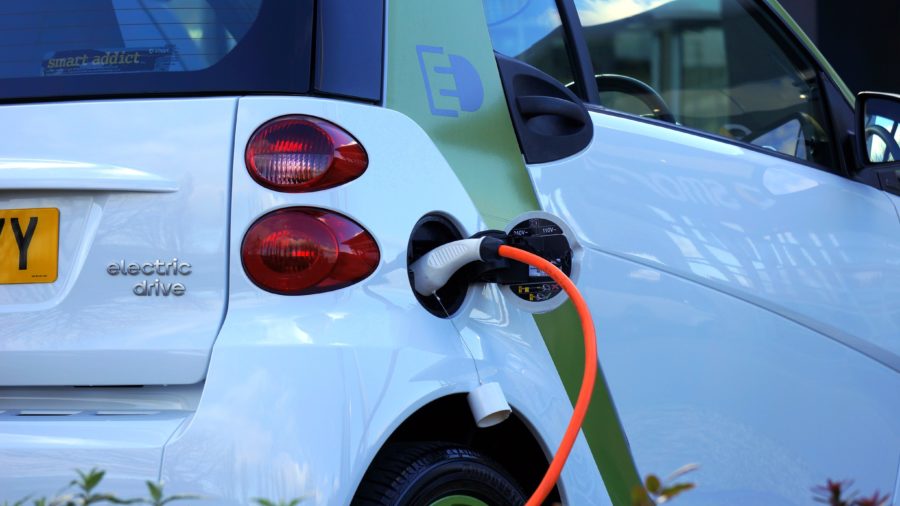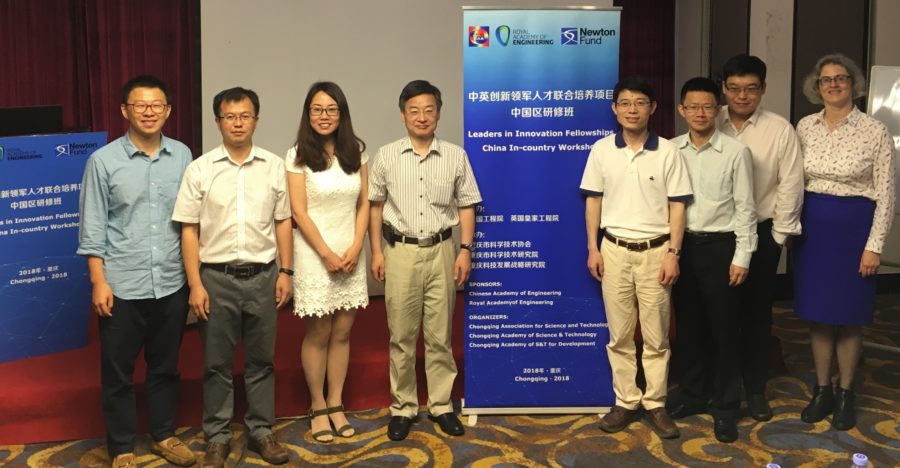27th July 2018 Beijing, China
New Chinese battery technology benefits UK through Newton Fund

Dr. Wang Wei is a professor at Nanjing University of Aeronautics and Astronautics. He has developed a new type of material for Li-ion batteries. Using this material, battery performance is increased 12 times. This innovation will provide critical support to the popularisation of electric vehicles. More importantly, demands of graphite, a high-polluting and energy intensive material, will be greatly reduced in the Li battery sector.
Dr. Wang was funded by Newton Fund to join the Leaders in Innovation Fellowships programme (LIF) in 2016. The LIF programme is developed by the Royal Academy of Engineering and the China Academy of Engineering. Dr. Wang started his entrepreneur journey with the support of LIF and decided to set up his R&D company in the UK. I met him in Chongqing in a LIF training event. It was around two years since he first attended the first LIF training in the UK. I was impressed by his transformation during the past two years and the fact that his business started to benefit the environment and led to investment in the high-tech and high-growth sector the UK.
Dr. Wang told me that when he brought his innovation to the LIF programme in 2016, he didn’t know that his innovation would be able to used by leading companies such as Tesla and LG. Through the LIF programme, he learnt and applied commercialisation and entrepreneurship skills to bring his products to market. After he came back, he continued his commercialization journey with follow on supports from coaches in LIF. His company successfully attracted RMB100million investment early this year. The production forecast of 2018 is RMB400-600 million. The produced materials could be used on about 15,000 EVs.
Dr. Wang highly appraises the LIF. He said the skill of being an entrepreneur and the business mind-set he learnt in the LIF programme is very useful. He commented that the continuous encouragement from the coaches and Newton team is the most important benefit from the programme. In particular, during his experience in the UK, he saw the power of R&D in private sector, which lead to his decision of focusing on R&D later on. Besides, his trip to the UK enabled him to develop an effective network.
After he came back to China, he collaborated with Cranfield University on the recovery technology of waste Li-ion battery. He worked with the Cambridge St John’s Innovation Centre to set up a research company in 2017. The company will officially start later this year and the first investment is RMB1million. It will provide 1-3 full time jobs in Cambridge. Dr. Wang hopes more and more joint research and commercialisation projects with the partners in the UK could be done through this company.
My colleagues in the China Newton team told me they remembered Dr. Wang presented his innovation on the first Newton Alumni gathering workshop in July 2017, with full of confidence. I feel proud that Newton programme is making real impact in China and brining real business to the UK.

